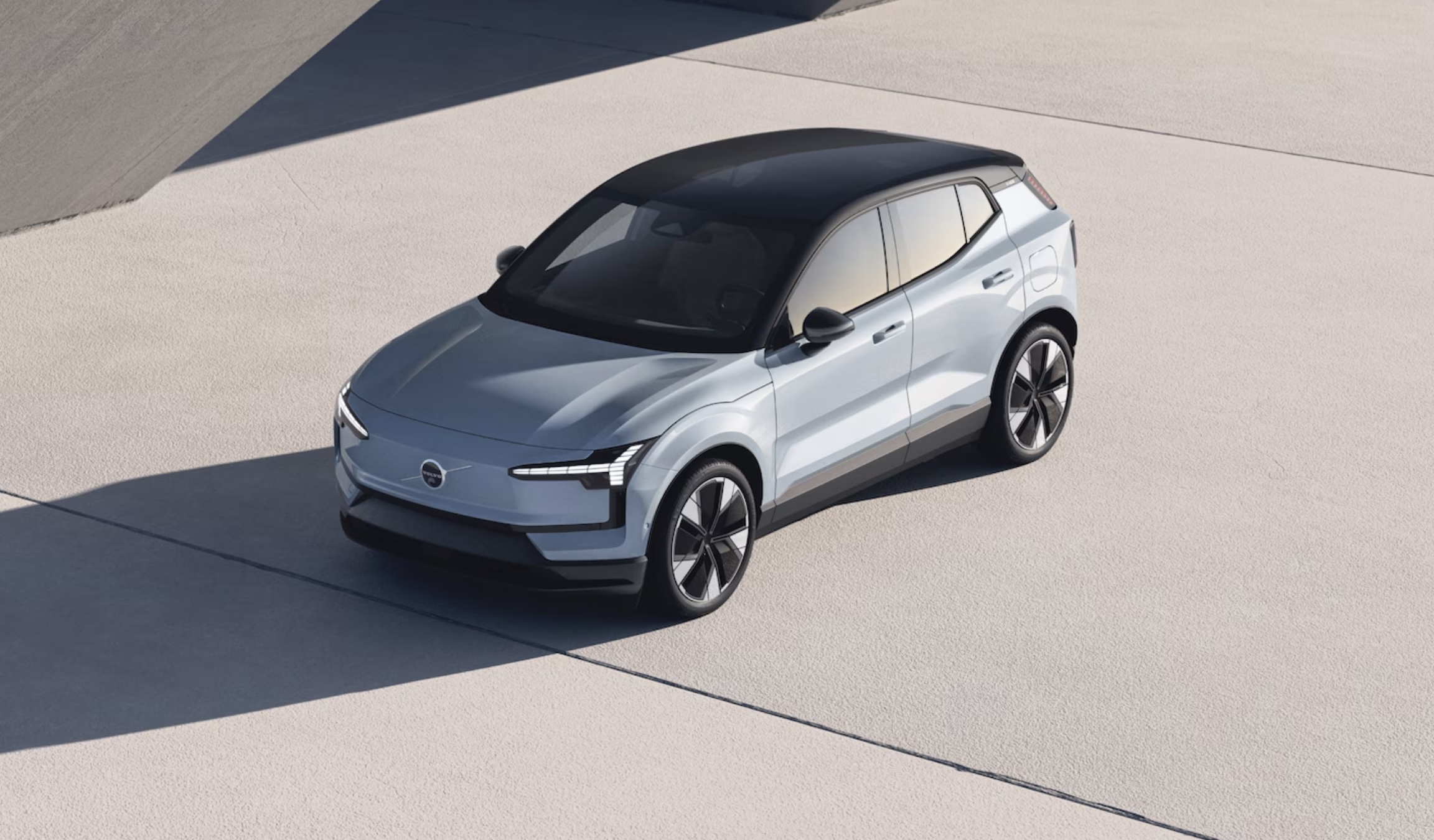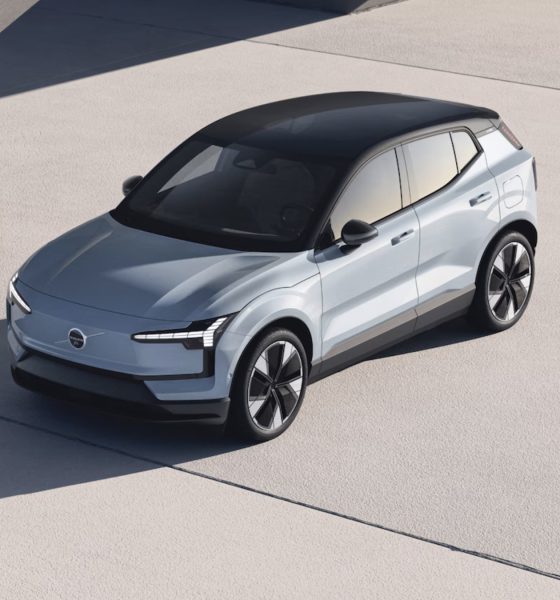UPDATE: A Volvo spokesperson has informed Teslarati that the legacy automaker has not decided if the EX30’s production will be moved to Belgium.
“We cannot confirm that the decision to also build the EX30 in Belgium is connected to the the EU investigation. It is premature to speculate on the implications of what this investigation will conclude, or any potential measures.
“The decision to also build the EX30 in Ghent reflects our ambition to build our cars where we sell them as much as possible. In fact, when we revealed the EX30 in June last year, we indicated we were exploring additional manufacturing locations globally and we confirmed in October 2023 that we would add capacity in Ghent for the EX30 from 2025,” Volvo told Teslarati.
[Original article starts below.]
Volvo has moved battery electric vehicle (BEV) production from China to Europe as the European Union is expected to impose tariffs on Chinese EV imports.
Inside sources claim that Volvo will not consider suspending sales of EVs produced in China. Instead, the company appears to be moving production to Europe.
According to The Times, Volvo is diverting production of its EX30 and EX90 vehicles from China to Belgium. Some Volvo models that are supposed to be produced in the United Kingdom might also be moved to Belgium.
Volvo’s headquarters is in Sweden, but the company is owned by Chinese automaker Geely. As a brand owned by a China-based car company, Volvo is seen as vulnerable to the EU’s plans to impose tariffs on Chinese EVs.
In 2023, the European Commission (EC) announced an anti-subsidy probe into EV imports from China. EC President Ursula von Der Leyen said China was flooding the EU with cheap EVs. She claimed that Chinese EV prices in the EU were kept artificially low by “huge state subsidies.” HSBC analysts estimated that Chinese EV import subsidies gave China-based automakers a 30% cost advantage.
The European Commission’s anti-subsidy investigation is expected to result in tariffs on Chinese EV imports. However, German automakers fear the repercussions of imposing tariffs since a few depend on sales in China.
Last month, Stellantis CEO Carlos Tavares slammed the Biden Administration’s 100% tariffs on Chinese EVs in the United States. He stated that Chinese tariffs in the United States were “just going to end up with more inflation inside the bubble.”
“Protectionism has a lot of drawbacks. They don’t appear immediately; they appear one after the other,” commented Tavares.
China has reacted to the tariffs imposed on its EV imports in the US and the expected tariffs in the EU. The Chinese government is considering a 25% tariff on foreign vehicle imports with large engines.
If you have any tips, contact me at maria@teslarati.com or via X @Writer_01001101.

Elon Musk
Texas township wants The Boring Company to build it a Loop system
The township’s board unanimously approved an application to The Boring Company’s “Tunnel Vision Challenge.”
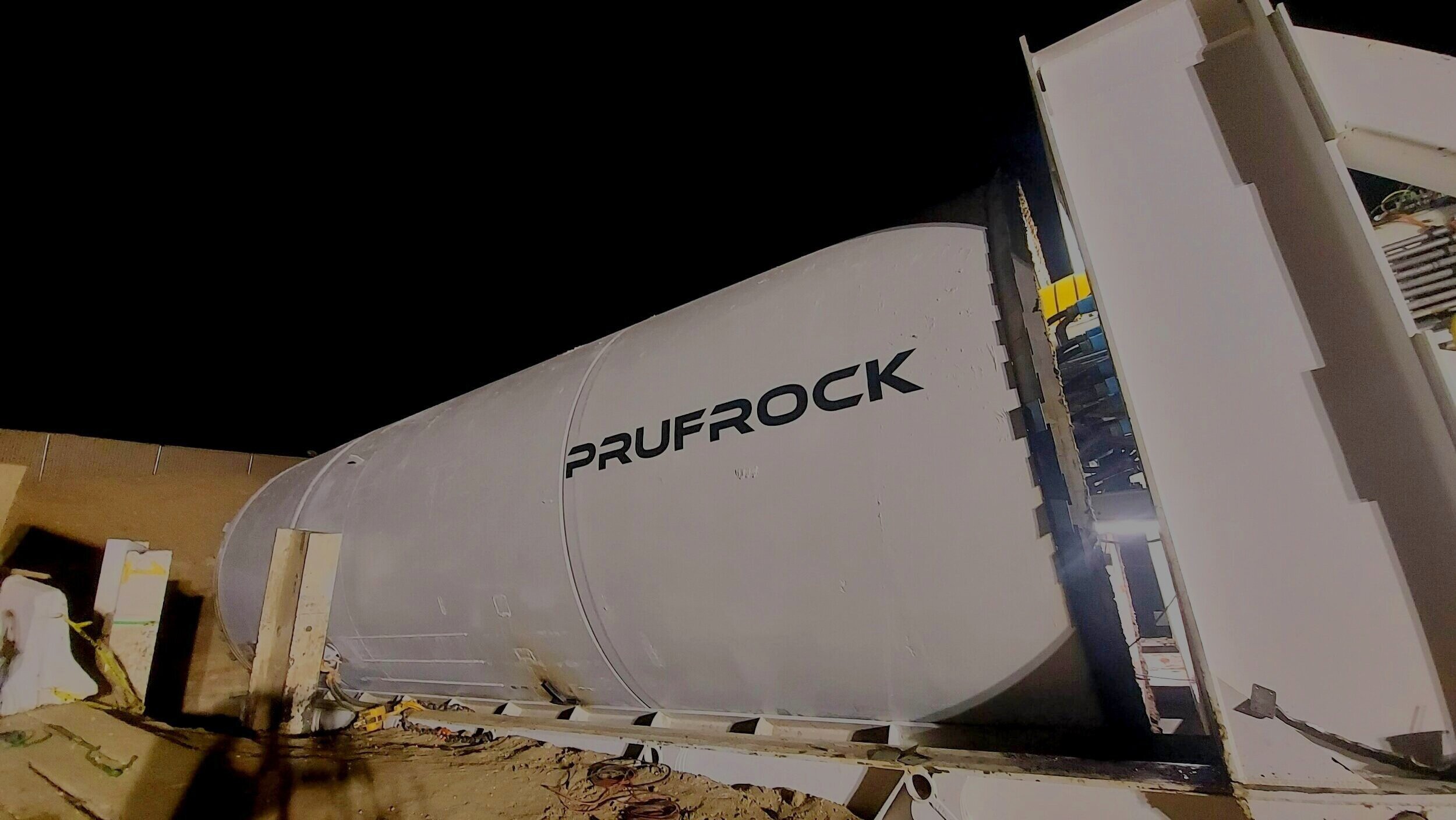
The Woodlands Township, Texas, has formally entered The Boring Company’s tunneling sweepstakes.
The township’s board unanimously approved an application to The Boring Company’s “Tunnel Vision Challenge,” which offers up to one mile of tunnel construction at no cost to a selected community.
The Woodlands’ proposal, dubbed “The Current,” features two parallel 12-foot-diameter tunnels beneath the Town Center corridor near The Waterway. Teslas would shuttle passengers between Waterway Square, Cynthia Woods Mitchell Pavilion, Town Green Park and nearby hotels during concerts and large-scale events, as noted in a Chron report.
Township officials framed the tunnel as a solution for the township’s traffic congestion issues. The Pavilion alone hosts more than 60 shows each year and can accommodate crowds of up to 16,500, often straining Lake Robbins Drive and surrounding intersections.
“We know we have traffic impacts and pedestrian movement challenges, especially in the Town Center area,” Chris Nunes, chief operating officer of The Woodlands Township, stated during the meeting.
“The Current” mirrors the Loop system operating beneath the Las Vegas Convention Center, where Tesla vehicles transport passengers through underground tunnels between venues and resorts.
The Boring Company issued its request for proposals (RFP) in mid-January, inviting cities and districts to pitch local uses for its tunneling technology. The Woodlands must submit its application by Feb. 23, though no timeline has been provided for when a winning community will be announced.
Nunes confirmed that the board has authorized a submission for “The Current’s” proposal, though he emphasized that the project is still in its preliminary stages.
“The Woodlands Township Board of Directors has authorized staff to submit an application to The Boring Company, which has issued an RFP for communities interested in leveraging their technology to address community challenges,” he said in a statement.
“The Board believes that an underground tunnel would provide a safe and efficient means to transport people to and from various high-use community amenities in our Town Center.”
News
Tesla Model Y wins 2026 Drive Car of the Year award in Australia
The Model Y is already Australia’s best-selling EV in 2025 and the tenth best-selling vehicle overall.
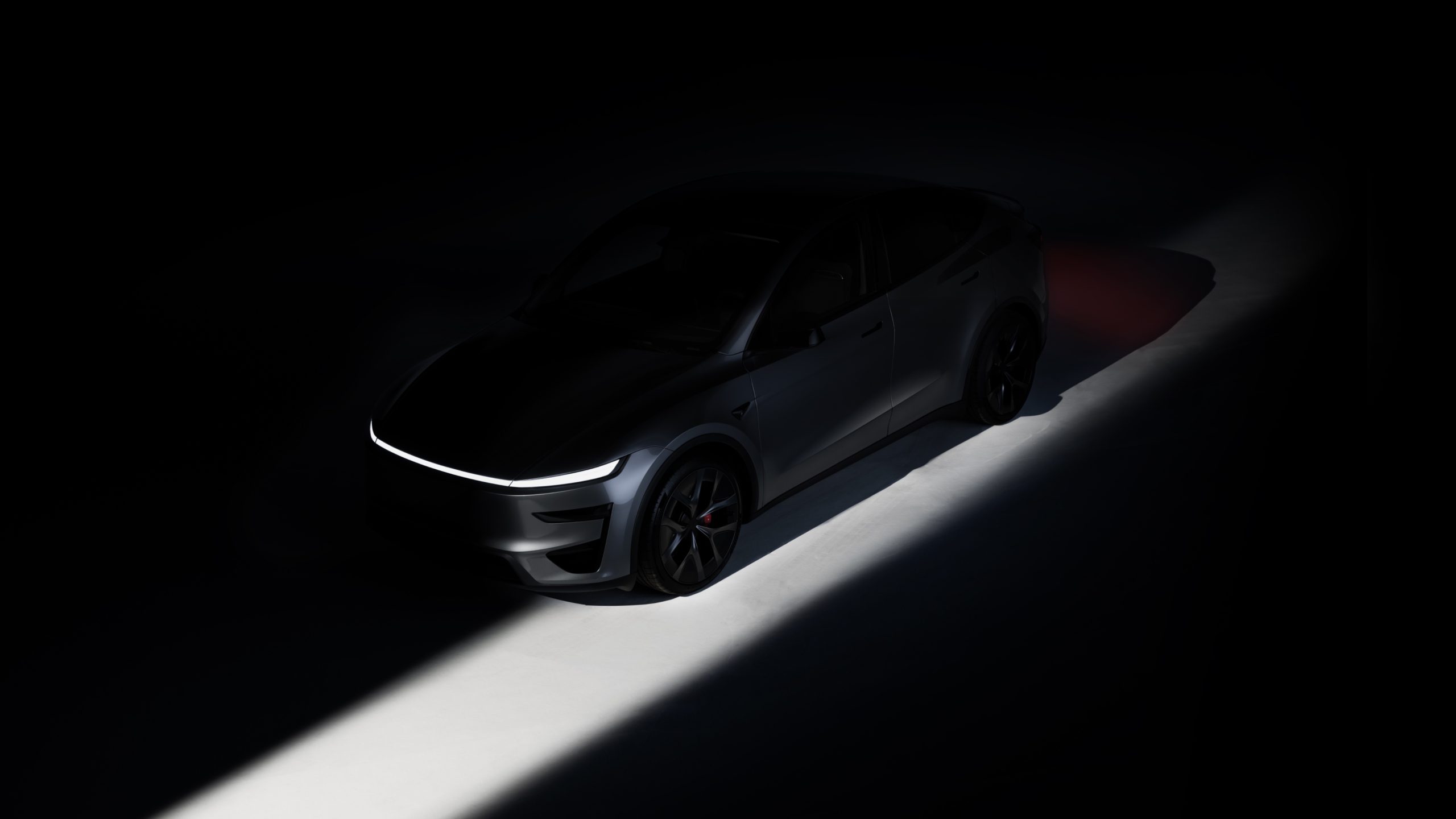
The Tesla Model Y has been named 2026 Drive Car of the Year overall winner, taking the top honor after being judged as the vehicle that “moves the game forward the most for Australian new car buyers.”
The Model Y is already Australia’s best-selling EV in 2025 and the tenth best-selling vehicle overall, but the vehicle’s Juniper update strengthened its case with new ownership benefits and expanded software capability.
Drive’s overall award compares category winners and looks at which model most significantly advances the local new car market. In 2026, judges pointed to the Model Y’s five-year warranty and the availability of Full Self-Driving (Supervised) as a monthly subscription as key differentiators.
Priced from AU$58,900 before on-road costs, the all-electric crossover SUV offers a lot of value compared to similarly sized petrol and hybrid rivals. The ability to access Tesla’s Supercharger network across Australia also reduces friction for buyers moving to EV ownership.
Owners can add FSD (Supervised) for AU$149 per month. While it still requires driver oversight, the system expands the vehicle’s advanced driver-assistance capabilities and reflects Tesla’s software-first approach.
“The default choice for a reason. The Tesla Model Y makes the transition to electric both effortless and rewarding,” Drive wrote.
The 2025 Model Y facelift also sharpened the vehicle’s exterior, highlighted by a distinctive rear light bar that gives the crossover SUV a more modern road presence.
Drive described the Model Y as a benchmark for combining practicality, efficiency and technology at an accessible price point. With eligibility for federal Fringe Benefit Tax exemptions through novated leasing, its value proposition has improved for numerous buyers.
For 2026, the Model Y’s combination of range efficiency, charging access and software capability proved decisive. Ultimately, the award all but cements the Model Y’s position as one of the most influential vehicles in Australia’s evolving new-car market today.
Elon Musk
Elon Musk reiterates rapid Starship V3 timeline with next launch in sight
Musk shared the update in a brief post on X, writing, “Starship flies again next month.”
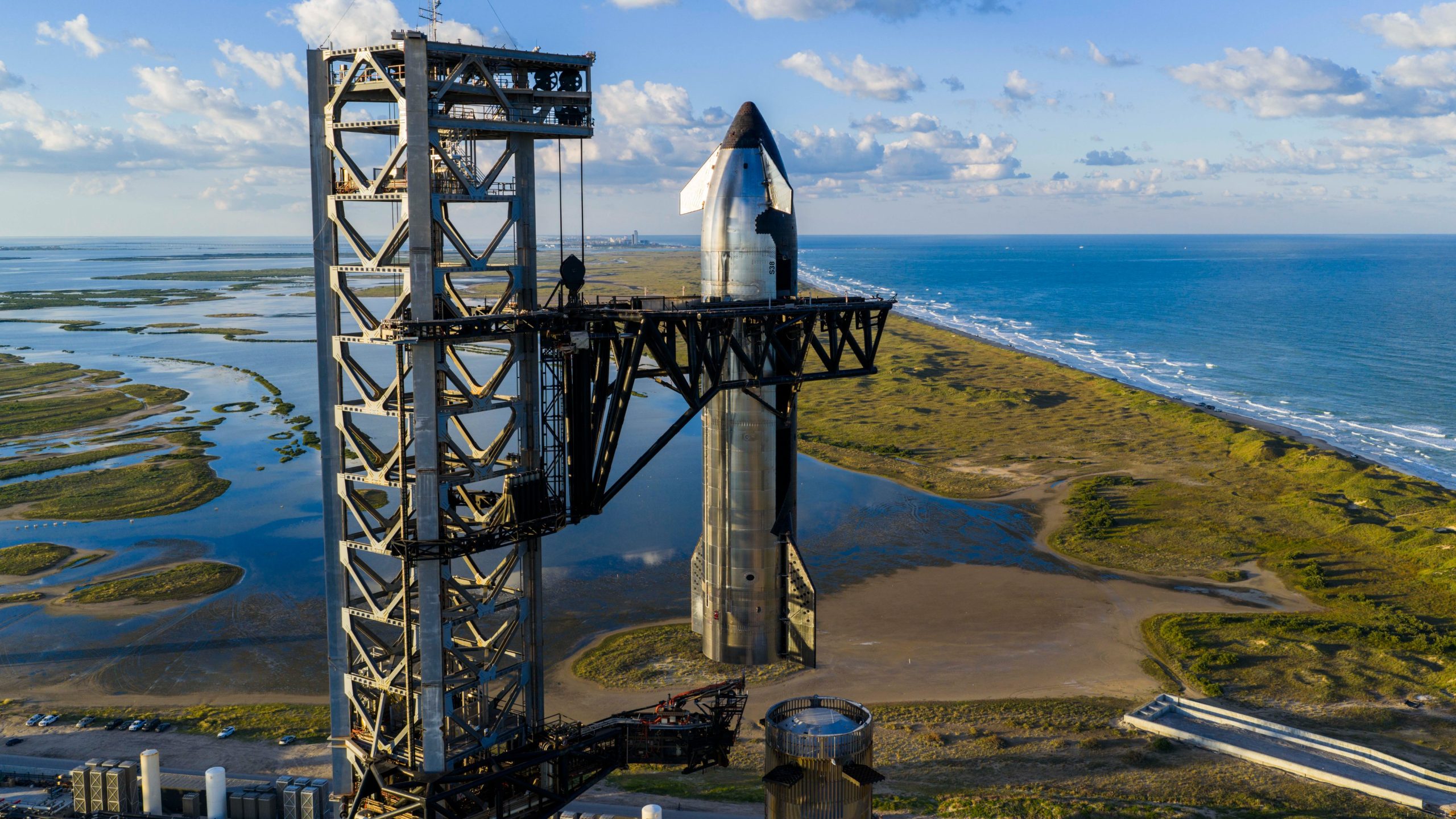
Elon Musk has confirmed that Starship will fly again next month, reiterating SpaceX’s aggressive timeline for the first launch of its Starship V3 rocket.
Musk shared the update in a brief post on X, writing, “Starship flies again next month.” The CEO’s post was accompanied by a video of Starship’s Super Heavy booster being successfully caught by a launch tower in Starbase, Texas.
The timeline is notable. In late January, Musk stated that Starship’s next flight, Flight 12, was expected in about six weeks. This placed the expected mission date sometime in March. That estimate aligned with SpaceX’s earlier statement that Starship’s 12th flight test “remains targeted for the first quarter of 2026.”
If the vehicle does indeed fly next month, it would mark the debut of Starship V3, the upgraded platform expected to feature the rocket’s new Raptor V3 engines.
Raptor V3 is designed to deliver significantly higher thrust than earlier versions while reducing cost and weight. Starship V3 itself is expected to be optimized for manufacturability, a critical step if SpaceX intends to scale production toward frequent launches for Starlink, lunar missions, and eventually Mars.
Starship V3 is widely viewed as the version that transitions the program from experimental testing to true operational scaling. Previous iterations have completed multiple integrated flight tests, with mixed outcomes but steady progress. Expectations are high that SpaceX is now working on Starship’s refinement.
An aggressive launch schedule supports several priorities at once. It advances Starlink’s next-generation satellite deployment, supports NASA’s lunar ambitions under Artemis, and keeps SpaceX on track for its longer-term Moon and Mars objectives.
